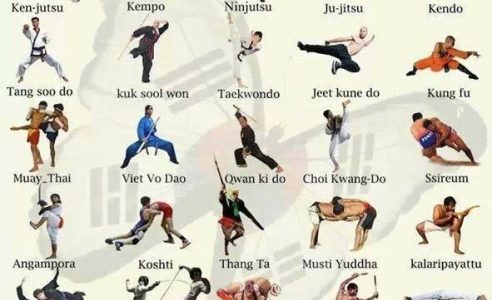The Background And Development Of Martial Arts: From Ancient Beginnings To Modern Techniques
The Background And Development Of Martial Arts: From Ancient Beginnings To Modern Techniques
Blog Article
Written By-Vilhelmsen Ayers
Enter the world of martial arts, where ancient beginnings and contemporary methods collide in a thrilling journey of self-control and self-discovery.
As you explore the background and advancement of this exciting art form, prepare to be captivated by the cultural impacts, technical developments, and profound philosophy that have actually formed it over centuries.
From martial arts for bullying of battles of old worlds to the training premises of today, martial arts have actually stood the test of time, continuously adjusting and expanding.
Each strike, each movement, carries with it the weight of countless years of tradition and knowledge, gave via generations. This is a tale of resilience, of warriors that looked for not just physical expertise, but also inner strength and consistency.
Join us on this remarkable exploration as we discover the secrets, the tales, and the transformational power of martial arts.
Prepare yourself to be inspired, tested, and permanently changed by the history and evolution of martial arts.
Cultural Influences on Martial Arts
As you check out the background and advancement of martial arts, you'll quickly discover the fascinating ways in which cultural influences have formed these combat techniques.
From the old worlds of China and India to the more current growths in Japan and Brazil, martial arts have been heavily influenced by the cultures in which they originated.
As an example, Chinese martial arts, such as Kung Fu and Tai Chi, are deeply rooted in the approach of Taoism and the principle of Yin and Yang.
On the other hand, Japanese martial arts, like Martial arts and Judo, mirror the samurai warrior customs and the values of technique and honor.
In a similar way, Brazilian martial art, Capoeira, combines components of African dancing and songs, mirroring the cultural heritage of African servants in Brazil.
These social influences not only provide each fighting style its one-of-a-kind attributes however likewise supply a deeper understanding of the historical and social contexts in which they evolved.
Technological Advancements and Martial Arts
With the rise of advanced weapons and cutting-edge training tools, you've been able to boost your skills and adapt to the ever-changing fight landscape.
Technical advancements have revolutionized the method martial arts are practiced and instructed. Virtual reality simulations now enable you to train in sensible battle situations without the threat of physical injury. High-speed cams record every relocation, allowing you to assess and ideal your techniques. Wearable devices monitor your heart rate, breathing, and muscle mass activation, supplying instant feedback on your efficiency.
In https://chinese-kids-martial-arts55432.aboutyoublog.com/31258449/martial-arts-for-kid-promoting-self-confidence-and-personality-advancement-from-a-young-age , the development of customized tools, such as resistance bands and agility ladders, has actually allowed you to enhance your rate, strength, and dexterity. These technological improvements have not only made training a lot more reliable but have actually likewise pushed the borders of what is feasible in martial arts, allowing you to get to new elevations in your method.
The Ideology and Concepts of Martial Arts
The ideology and concepts of martial arts are deeply rooted in shaping your state of mind and instilling technique, emphasis, and regard in your practice.
1. Continue Reading of mind: Martial Arts teaches you to establish a solid and durable attitude. It allows you to get rid of challenges both on and off the mat, pushing your restrictions and standing firm when faced with adversity.
2. Discipline: Martial Arts needs technique and self-control. Through normal training and adherence to strict policies and techniques, you discover to manage your impulses and develop a strong job ethic.
3. Emphasis: Martial Arts needs intense focus and concentration. By training your mind to be existing in the moment, you improve your ability to react promptly and successfully during fight situations.
4. Respect: Martial Arts highlights respect for oneself, teachers, educating partners, and challengers. It instructs you to value the skills and experiences of others, cultivating a sense of friendship and gamesmanship.
Conclusion
Congratulations on completing your journey through the exciting globe of martial arts! Throughout this exploration, you have seen the rich background and remarkable advancement of these battle methods.
From their old origins to the modern-day strategies we see today, martial arts have been shaped by cultural influences.
The combination of innovation has likewise played a significant function in revolutionizing the means martial arts are educated and practiced in today day.
Nevertheless, it is necessary to bear in mind that martial arts are more than simply physical fight. They include extensive philosophies and leading principles that surpass the mere act of combating.
Take a minute to reflect on this obsolete experience and value just how the legacy of martial arts remains to prosper in the here and now, going beyond time and borders.
